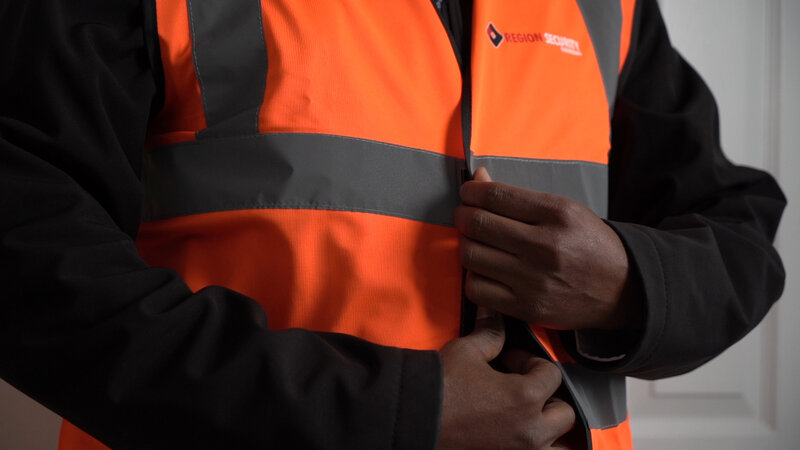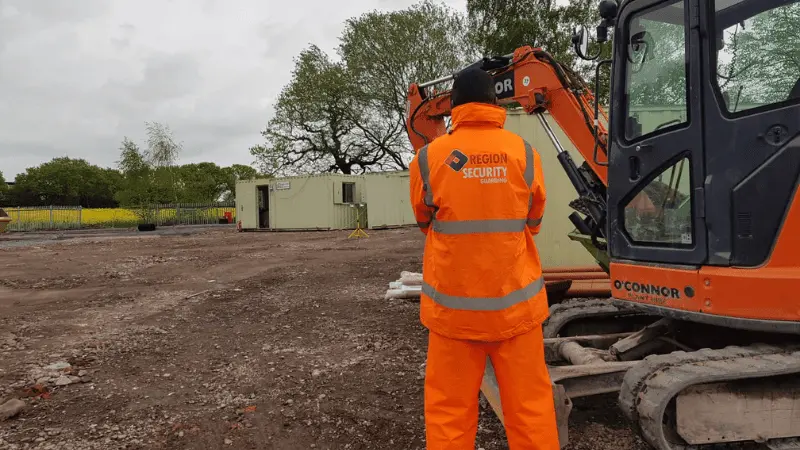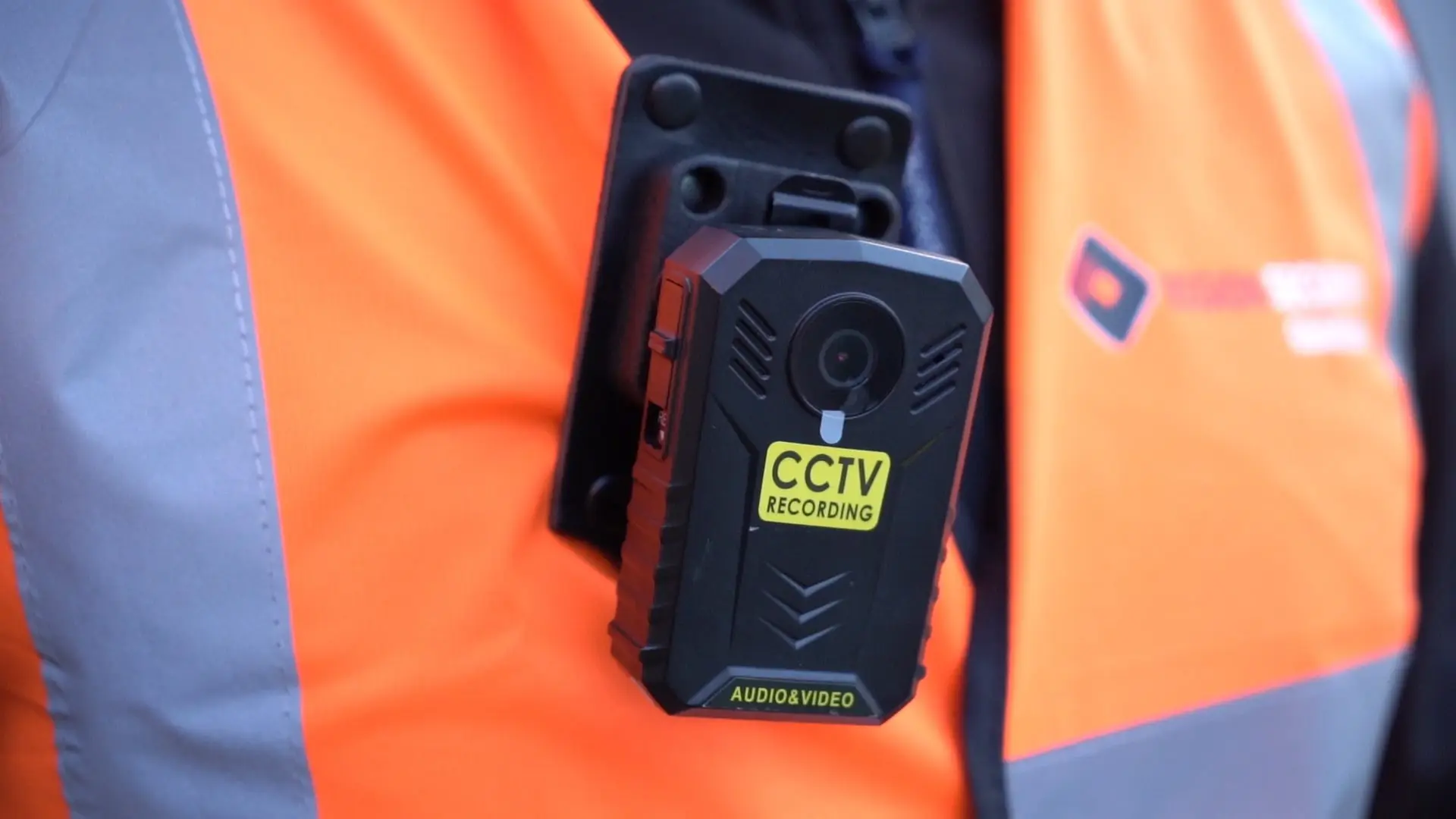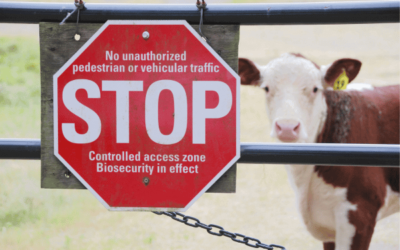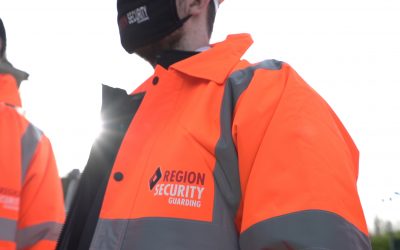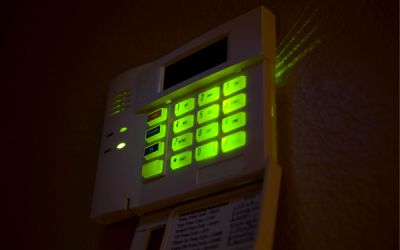What Is A Citizen’s Arrest and When To Perform A Citizen’s Arrest?
Written by Holly Savage
5th April 2022
Contents:
- What Is Citizen’s Arrest?
- Are Citizen’s Arrests Legal In The UK?
- Can The Public Make A Citizen’s Arrest?
- Can A Security Guard Make A Citizen’s Arrest?
- What Are The Grounds For A Citizen’s Arrest?
- Citizen’s Arrest And Indictable Offences
- When Can You Make A Citizen’s Arrest?
- Making A Citizen’s Arrest In The UK
- Can You Use Force In A Citizen’s Arrest?
- Can You Make A Citizen’s Arrest If Someone Is Trespassing?
- How To Perform A Citizen’s Arrest
Citizen arrests can be a great way for security guards to detain people. But what is a citizen’s arrest really? And when should guards perform a citizen’s arrest?
We will be discussing this and more such as, whether citizen’s arrests are legal in the UK, when guards should make one, and what is the best way to perform a citizen’s arrest.
What Is A Citizen’s Arrest?
A citizen’s arrest is when a member of the public, who is not a law enforcement official, performs an arrest on another member of the public. This means that anybody from someone doing their weekly shopping at a supermarket, to a security guard can carry out a citizen’s arrest.
Are Citizen’s Arrests Legal In The UK?
Citizen arrests are legal in the UK. While they are often seen to be open to interpretation, the laws about citizen arrests are found in section 24A of the Police and Criminal Evidence Act 1984. It’s worth noting that they are officially referred to as arrests without warrants but are still commonly known as a citizen’s arrest.
Whilst they are legal, it is always recommended that you let law enforcement professionals handle any arrests due to the risks involved when apprehending someone who could be dangerous.

Can The Public Make A Citizen’s Arrest?
Yes. Legally, anyone is allowed to make a citizen’s arrest if they believe that someone is committing a crime.
Can A Security Guard Make A Citizen’s Arrest?
Yes, both mobile patrol and static security guards will be allowed to perform a citizen’s arrest. Guards will normally make a citizen’s arrest when they are detaining someone that they believe is committing a crime.

What Are The Grounds For A Citizen’s Arrest?
There are many reasons why a member of the public or a security officer may consider making a citizen’s arrest. However, a citizen’s arrest should only really be performed if you have grounds to believe that someone is committing a crime. These crimes could be violent activities, property damage, theft, or break-ins.
Citizen’s Arrest And Indictable Offences
As we mentioned earlier, it is advisable to perform a citizen’s arrest in the UK if the suspect is committing an indictable offence. An indictable offence is the most serious criminal offence. Due to the nature of the crime, indictable offences need to be tried in the crown court. This is covered in section 51 of the Crime and Disorder Act 1988. Some examples of indictable offences are:
- Murder
- Manslaughter
- Terrorism
- Trafficking
- Rape
- Criminal damage worth over £5000
Services such as retail security and CCTV monitoring can be established to deter things like shoplifting. While it is viable to perform a citizen’s arrest for a smaller offence like shoplifting it may not be as encouraged as it is a summary-only offence due to it being seen as a less serious crime.
In terms of looking at this from a retailer’s perspective, most retail companies have specific policies regarding staff apprehending shoplifters in their stores. For the most part, they will discourage this as they don’t want to put their employees’ health and safety at risk.

When Can You Make A Citizen’s Arrest?
Citizen arrests should always be used as a last resort. So, the best time for guards to make a citizen’s arrest is when they believe someone is committing a crime or when they have to detain someone.
Making A Citizen’s Arrest In The UK
There are some guidelines to follow as to when it is necessary to make a citizen’s arrest:
- When it is not an option for a police constable to make the arrest.
- If the person is causing physical injury to themselves or others.
- If they are causing damage or loss of property.
- Escaping before a police constable can take responsibility for them.
As you can see from this information provided in the Police and Criminal Evidence Act 1984, they could be seen as open to interpretation. It is going to be difficult when you see one of these offences being committed for you to take the time to decide if the offence is indictable as previously mentioned.
When you are making a citizen’s arrest, you must explain to the person what you are doing and why you are doing it. While this might not be at the forefront of your mind whilst carrying out a citizen’s arrest, you must do this. You also need to tell them the crime they are suspected of committing.
Knowing whether or not you have made the right call can be difficult, so the first step is to ensure that your suspicions of a person committing a criminal act have reasonable grounds. The checklist below is a good reference to look back on when making this decision:
Have You Noticed Suspicious Behaviour?
Did they pick up an item from a retail store that they then proceeded to conceal or hide? Were they carrying an item that is intended to do damage to property such as spray paint?
Is There a Definite Possibility of the Crime Taking Place?
Did they leave the shop without paying for said items? Has the damage been done to property or a person? Is it the process of being done?
Have You Watched Them Continuously Over The Course Of This Time Period?
If you have not watched them over this period then the items may have been put back, or the spray paint taken from the original suspect by someone else. Without watching them over the entire period you may be uncertain as to whether you have reasonable grounds for suspicion.
If you can satisfy the requirements of this checklist, then you can be relatively certain of your legal rights to detain a person. When approaching someone who has potentially committed an offence, you need to explain to them exactly what is happening, and who you are and allow them to prove their innocence by asking if, for example, you can check their bag and receipts etc.
If a crime has been committed, then the police can be contacted, and you should stay with the person until the police arrive. While preventative measures such as CCTV and store detectives can be used to deter crime – security guards could perform a citizen’s arrest in this situation.

Can You Use Force In A Citizen’s Arrest?
Many people wonder if guards are allowed to use force when they are performing a citizen’s arrest and yes, if guards need to use force to control the situation, they must not use anything other than reasonable force. While the definition of reasonable force can be seen as very circumstantial, using methods other than reasonable force could lead to your own prosecution. Some examples of reasonable force include:
- Protecting yourself ‘in the heat of the moment’.
- Stopping an intruder from escaping by tackling them to the ground.
A good example of reasonable force would be someone who has been apprehended to stop assaulting another person. You would be able to restrain them and hold them down to the ground to stop them from hurting another person and to wait for the police to take responsibility for the situation.
If you then start hitting the person after they’ve been restrained, this would be classed as an unreasonable force. Doing this would mean you could be charged with assault.
It’s important to answer two questions when looking at reasonable force in terms of a citizen’s arrest. Was it necessary? And was it proportionate? Section 76 of the Criminal Justice and Immigration Act 2008 covers the use of reasonable force in self-defence, the same ideas can be applied to the use of reasonable force when making a citizen’s arrest.
Can You Make A Citizen’s Arrest If Someone Is Trespassing?
In the UK, trespassing is not a criminal offence. There are however some offences where trespassing is a key element, which is covered in the Criminal Justice and Public Order Act 1994. This would be something that would have to be deemed necessary to carry out a citizen’s arrest based on the intent of the individual.
Best practices when dealing with someone who is trespassing would be to speak to them politely and establish why they are on the property, let them know they are trespassing and ask them to leave. Reasonable force can be used to remove the person from the property if they refuse after being told several times. In terms of performing a citizen’s arrest on someone who is trespassing, it depends on what they are planning on doing/what they are caught doing.
Some examples of this would be if the trespasser had a weapon and was planning on harming another person, or if they were showing evidence of carrying out a terror attack on the property.

How To Perform A Citizen’s Arrest
There are many times when guards or members of the public may need to perform a citizen’s arrest. We have listed all the necessary steps for making a citizen’s arrest in more detail.
Step 1: Deciding Whether To Make A Citizen’s Arrest
It’s only advisable to make a citizen’s arrest if you’ve actually seen a crime being committed. You are going to have to provide probable cause to the police when they arrive and take responsibility for the individual. You shouldn’t perform a citizen’s arrest just because you think something is about to happen.

Step 2: Make Sure You Can Safely Perform A Citizen’s Arrest
The process of performing a citizen’s arrest can be dangerous. The suspect could have a weapon or could already be committing a violent crime. You may need to physically restrain the individual, so you need to evaluate the situation and make sure you can control it with excessive use of force. If you attempt to make a citizen’s arrest and are unable to properly restrain the suspect, the situation could easily spiral out of control and become much worse.
Consider your surroundings, both environmental and those around you. Is it likely that someone else is going to be injured during the arrest? Can you safely restrain the suspect without seriously injuring them? Be on the lookout for hard surfaces that could cause serious head injury as these could be life-threatening to both the suspect, yourself, and passers-by.

Step 3: Explain Who You Are, What You’re Doing And Why
It’s very important that you go through the process of explaining who you are, that you are performing a citizen’s arrest, and why you are doing it. This is going to involve explaining the crime they are suspecting of committing.
It is also going to involve you explaining each step of the process to the individual. An example of this would be explaining that you are restraining them on suspect of trying to physically assault another person, that you are not trying to hurt them and are calling the police so they can take responsibility of the situation.
Remain calm, polite, and respectful throughout the whole process as to not further exacerbate the situation.

Step 4: Restrain The Suspect With Reasonable Force
You are only permitted to use reasonable force when performing a citizen’s arrest, and you should only use enough to take control of the situation.
For example, when you are restraining the suspect to the ground while waiting for the police to arrive, reasonable force could be useful if the suspect acts as a threat or becomes violent.
Once they have been restrained it would be an unreasonable force to hit the suspect until they are unconscious, as the situation is under control this would be unnecessary.

Step 5: Call The Police Immediately
Once the situation is under control you need to make sure that the proper authorities are contacted immediately. Ask a passerby to do this for you if you are currently restraining the suspect. This may have already been done and you could be taking responsibility for the suspect until the police arrive.
When they arrive on the scene to take responsibility for the suspect, you must let them know what crime the suspect has committed, everything you saw regarding the incident and the actions you carried out during the arrest. You may be required to provide this information later in a statement.

Step 6: Be Prepared For Any Legal Consequences
In an ideal world, this wouldn’t be something you need to consider, but it isn’t uncommon for a situation that calls for a citizen’s arrest to spiral out of control. It is easy for the suspect to get injured or for a more violent altercation to break out. This can end up with you being charged for injury or even assault.
If you make an arrest and no crime was committed, this is going to bring its own set of legal complications against you. So, you need to be aware of this before you consider making a citizen’s arrest. This is one of the reasons why it is always recommended to leave arrests to law enforcement professionals as they are trained to properly handle these sorts of situations.

So, What Is A Citizen’s Arrest?
Overall, a citizen’s arrest is an option that only happens if a guard is dealing with an incident where someone needs detaining. It’s always advisable to let law enforcement professionals such as the police, handle a situation instead. It can often be quite dangerous to apprehend someone caught in the act of committing a crime, especially if it’s a violent crime.
If you are keeping up to date with the latest security guard news and our latest safety tips and guides, then why not check out our blog? Where you can find articles about becoming a security guard, what physical security is and what are the best personal safety tips.
Let’s Stay In Touch
Want to stay updated with our latest content? Enter your email address to subscribe to our free newsletter.
Related Articles
Eight Farm Security Solutions To Keep Your Farm Secure
Farming has become even more popular in the last few years, and rural crime is becoming a huge issue for many farmers. Back in 2020, it was reported by Ourwatch that at least £2.3 million worth of livestock and millions of pounds worth of machinery were stolen.
How To Become First Aid Qualified
Like any other medical assistant, the basic objective of providing first aid is to save lives. And most times injuries are time sensitive – which means having someone immediately available to alleviate a dangerous situation could be critical to the long-term health of an individual.
Five Reasons You Should Outsource Your Security
5 REASONS YOU SHOULD OUTSOURCE YOUR SECURITY Security needs to be considered with all variables of your business and its comings and goings. You may have the resources to hire a guard or two for...
Top 10 Security Tips For Elderly People
TOP 10 SECURITY TIPS FOR ELDERLY PEOPLE If you or your loved one is an elderly person, you might be worried about safety. Grifters and scammers target elderly people in their own homes as well as...
How To Secure A Caravan?
Caravans are becoming extremely popular homes and vacation places. In the UK, it estimated that there are 550,000 touring caravans. With the amount of caravans increasing, it is essential to keep your caravan safe but how can you do this?
How To Stay Safe On New Year’s Eve
New Year’s Eve can be a wonderful and exciting time of the year for many people with plans for parties and celebrations with friends and families but it should also be important to highlight that danger are still present.
Winter Safety Tips 2024
Winter can be a dangerous time of year for many people, from the build-up of snow and ice to the road to general darkness and cold temperatures.
Christmas Home Security Tips
Although Christmas is a happy and exciting time, it is also a time popular time for theft and break-ins. So, it is extremely important to make sure that you have the best home security in place. But what are the best ways to secure your home from burglars?
Tips For Installing Security Alarms
Installing security alarms on your property is a great way to stop security threats such as robbers. In this article, we will be discussing how to install a security alarm, whether you need an alarm permit, and what are the best tips for installing security alarms.

